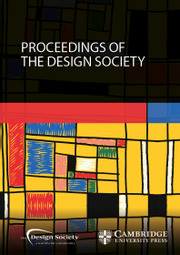No CrossRef data available.
Article contents
THE INFLUENCE OF KNOWLEDGE ABOUT HEURISTIC DECISIONS AND COGNITIVE BIASES IN ENGINEERING STUDENTS AND JUNIOR ENGINEERS: CASE STUDIES FROM GERMANY AND THAILAND
Published online by Cambridge University Press: 19 June 2023
Abstract
Understanding heuristics and cognitive biases might lessen their impact since they can cause decision errors. From the responses to the survey for case studies, this study aims to investigate the fundamental understanding of heuristics and cognitive biases in engineering students and junior engineers from Germany and Thailand. The results indicated that the majority of participants knew very little about them. In a brief lecture, only few students from Germany knew about them. They had less of an impact on students who already knew them than on those who did not. However, engineers were unaware of them and are able to limit their effects. That implies that they can manage cognitive biases' effects without being aware of them. Therefore, experience is another crucial element in lessening the impact of biases. The behavior can also impact how much cognitive biases influence decision-making. Culture and environment affect the way of thinking. Although the finding suggests that knowledge is not the primary element in decreasing the impact of heuristics and cognitive biases, it is still vital to explain and further study the level of knowledge and the effectiveness of knowledge transfer to determine how they may have an impact.
- Type
- Article
- Information
- Creative Commons
- This is an Open Access article, distributed under the terms of the Creative Commons Attribution-NonCommercial-NoDerivatives licence (http://creativecommons.org/licenses/by-nc-nd/4.0/), which permits non-commercial re-use, distribution, and reproduction in any medium, provided the original work is unaltered and is properly cited. The written permission of Cambridge University Press must be obtained for commercial re-use or in order to create a derivative work.
- Copyright
- The Author(s), 2023. Published by Cambridge University Press




